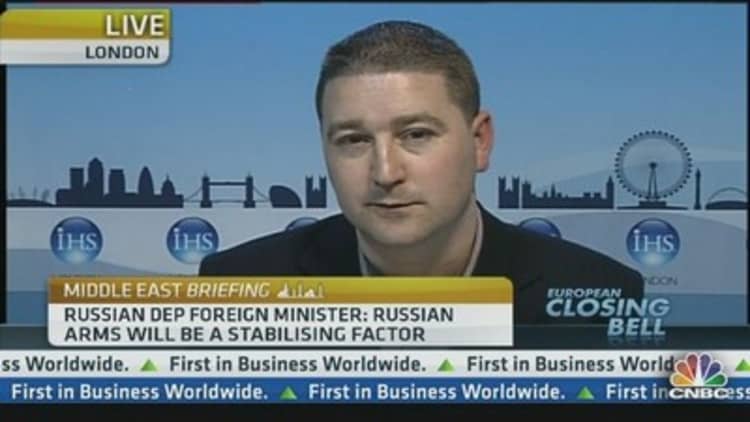Since the war in Iraq, U.S. foreign policy has been in a downward spiral: It was caught off guard by the "Arab Spring" and increasing incoherence has left it paralyzed and ineffective. Nowhere is this more palpable than in Syria.
For the U.S., there is no favorable outcome in Syria at this point—only the least unfavorable—and even that will not likely be dictated by Washington but by the Qatari and Saudi troublemakers supporting the rebels and al-Qaeda forces in Syria on one side, and ever-steadfast Russia and Iran supporting Hezbollah and the Syrian army on the other.
Amid this changing geopolitical power theater, Syrian leader Bashar al-Assad has issued a public statement to a newspaper in Argentina. Assad says there will be no dialogue with the "opposition" because there is no unified opposition to sit down and talk with. Who would Assad negotiate with? The extremist al-Nusra, which arguably has the most control among the disparate "rebel" forces; or one of the representatives of the Free Syrian Army whose ranks are increasingly filled with everyone except the genuine opposition; with potential power brokers shifting on and off the stage; or the Syrian National Council?
There will be no ceasefire—except on Assad's terms--and the upcoming U.S.-Russia-sponsored peace summit in Geneva will be a wash, regardless of what is put down on paper.

(Related Article From OilPrice: Qatar, Saudi Arabia and Petro-Political 'Peace' for Syria)
Does the U.S. even want regime change anymore, if the result of that will clearly be al-Qaeda-linked? Washington isn't sure and continues to wobble while other external actors take stage, front and center.
Russia sees which way the wind is blowing and understands that the Geneva talks have already been hijacked and doomed. It's hedging its bets now more seriously on Assad, as attested by its deployment of more warships and anti-ship missiles to the eastern Mediterranean, not to mention a care package of ground-to-sea and anti-aircraft missiles for the Syrian regime.
What this means, effectively, is there can be no ceasefire and no implementation of a no-fly zone. It' a message to any of those Western and Gulf Cooperation Council (GCC) actors dithering on the edge here that an airstrike on Assad's strongholds will not be tolerated.
(Related Article From OilPrice: Open Season on Syria's Civil War)
We will now learn just how badly Qatar wants that pipeline from its North Pars gasfield through Syria, and how badly Turkey wants Qatar to have it. As for Russia, its military largess could land it a nice chuck of lucrative exploration territory in Syria's portion of the Levant Basin if Assad comes out of this on top—eventually.
Could there be a peaceful regime change as a result of the Geneva summit? Elections are supposed to be held in 2014, and Russia will back this as a way to peaceful transition.
The myriad external actors meddling on the chaotic rebel side aren't likely to allow it. The U.S., Europe and Israel are too fixated on Iran here and finding themselves choosing al-Qaeda over Tehran in the Syrian game.
The bottom line, though, is that the Syrian "opposition" has been weakened, and al-Nusra is in control. Last week, the head of the Syrian National Coalition, Moaz al-Khtaib, resigned, ostensibly because the "international community" has failed to empower them to end the conflict. The rest of the opposition seems to be united in one aspect only: Any talks with Assad must result in him playing zero role in Syria's future.
(Related Article From OilPrice: Should the US Intervene in Syria?)
It's not only Assad who thinks that the West and Israel are interested in a prolonged conflict in Syria; the rebels are increasingly coming to the same conclusion due to the on-and-off support they enjoy from their so-called allies.
What Assad seems to be banking on is that Washington will eventually be convinced that he will be capable of combating the now explosive jihadist problem in Syria and help bring things around full circle. If Assad, with the increasing help of Hezbollah, continues to make gains against the rebels up until June, when the Geneva summit should be held, he will be in less of a mind to compromise.
On the superpower scene there is one clear beneficiary of the conflict in Syria—and that is Russia. It has been catapulted onto the scene as the only effective power broker here, and it has no need to cave to U.S. pressure on the issue. In reality, U.S. weakness equals Russian power.
—This story originally appeared on Oilprice.com. Click here to read the original story.

